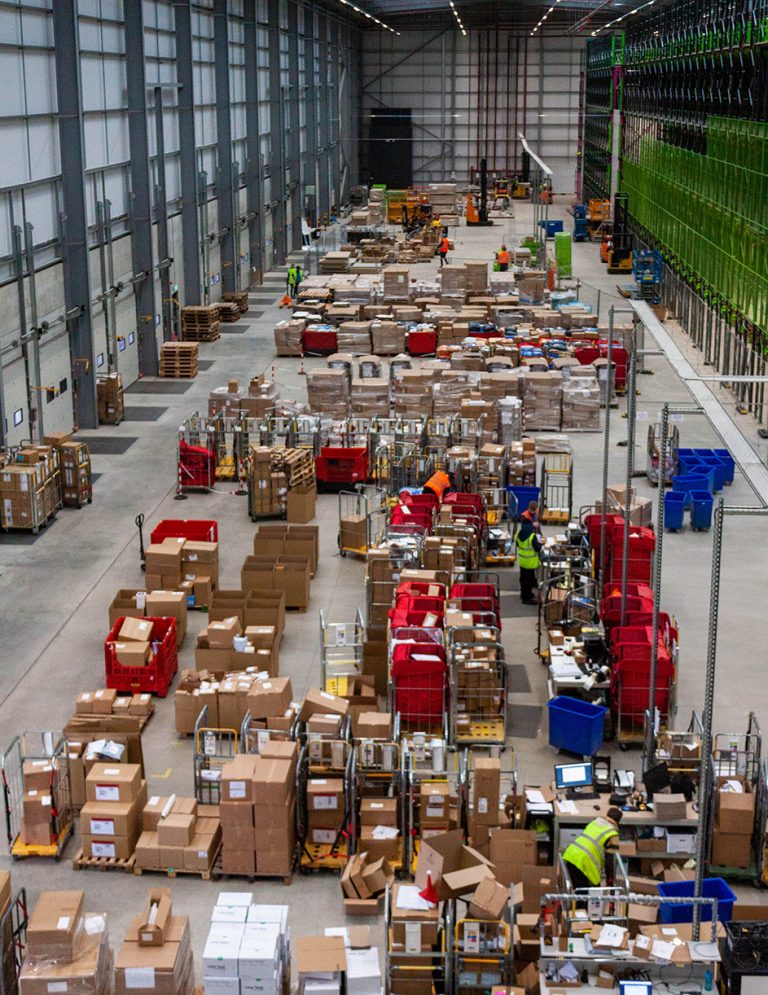Rebalancing the supply chain post pandemic
The past two years have been turbulent for online retailers. From surging demand to supply chain disruption and now soaring prices, fulfilment models remain under unprecedented pressure. With environmental commitments likely to be required by governments in response to COP26, what are the key supply chain trends for 2022? Emma Dempsey, CEO, James and James Fulfilment takes a look at the likely changes over the next 12 months.
 Now the peak 2021 season is over there will be a significant rebalancing of the supply chain. The frailties of just-in-time models have been exposed over the past two years and, with global supply chain disruption expected to extend throughout 2022, companies have recognised the need to add contingency to ensure customer commitments can be met.
Now the peak 2021 season is over there will be a significant rebalancing of the supply chain. The frailties of just-in-time models have been exposed over the past two years and, with global supply chain disruption expected to extend throughout 2022, companies have recognised the need to add contingency to ensure customer commitments can be met.
The need to increase stock holdings will put further pressure on already stretched warehouse space and compel companies to think carefully about where best to locate resources. Micro-warehouses are likely to pop up in towns and cities across the UK; while larger companies will also look again at global distribution strategies in a bid to overcome disruption issues and ensure products can be fulfilled closer to the customer.
Easing global trade
The simplification and automation of charges relating to duties and taxes will also encourage companies’ global strategies. As Brexit has so clearly exposed, there is unnecessary friction in fulfilment services as a result of customs confusion. The high overheads endured throughout cross-border trade, with products held up at customs and goods being returned to suppliers, have deterred businesses from global operations.
During 2022 systems will become more widespread to automate this process and add far more clarity. This will not only overcome the barrier to global trade but also unlock the local fulfilment model.
Increasing reliance on Artificial Intelligence
Micro-warehouses and extending global fulfilment models to get closer to the customer will demand additional capital investment – but they also open up new opportunities to service the customer.
To make this work, companies will need access to accurate, real-time data. Data points that include rates of sale and stock turnover, as well as global patterns of customer demand, will inform initial warehouse location strategies – and then feed into replenishment models. The use of machine learning and artificial intelligence (AI) will play an increasing role in optimising these distributed fulfilment models: intelligent warehouse allocation rules will allow different customer offers to be made based on stock location and quantity, as well as cost and speed of shipping, and the rate of sale of stock in each area.
Green commitments
In the wake of COP26, and calls for firms to show they will hit net zero, no company can ignore the need to better understand its environmental footprint. For eCommerce companies this will require far more understanding at every stage of the supply chain, from manufacture all the way through to the last mile and returns. The shift towards local fulfilment can also mean a reduction in delivery mileage and associated carbon footprint, but companies will need to have in depth information to understand the implications in detail.
Effective, efficient supply chains are already data driven – and the onus now will be on companies, and fulfilment providers, to surface new data points that provide environmental impact insight. AI will also be a vital tool in the drive towards net zero, using environmental impact metrics such as carbon footprint to provide companies with in-depth understanding of their environmental performance to meet both government requirements and consumer expectations.
Minimising returns
The perennial problem of returns is also one that has to be addressed more effectively during 2022 – not only in the light of rising inflation but also to reduce the environmental impact of additional, unnecessary journeys. Vast quantities of data are collected throughout the supply chain that, if analysed correctly, can provide amazing insight into returns trends.
Some vendors are already using returns data to inform strategy. Products being returned repeatedly due to sizing can be redescribed on the website and information also fed back into the manufacture process. The use of AI and machine learning across detailed returns data will also surface new insights that will provide companies with new understanding of customer behaviour and performance by SKU. Companies will need to proactively explore and use this insight over the next 12 months to gain far more understanding into returns and develop new policies to reduce the financial and environmental impact.



